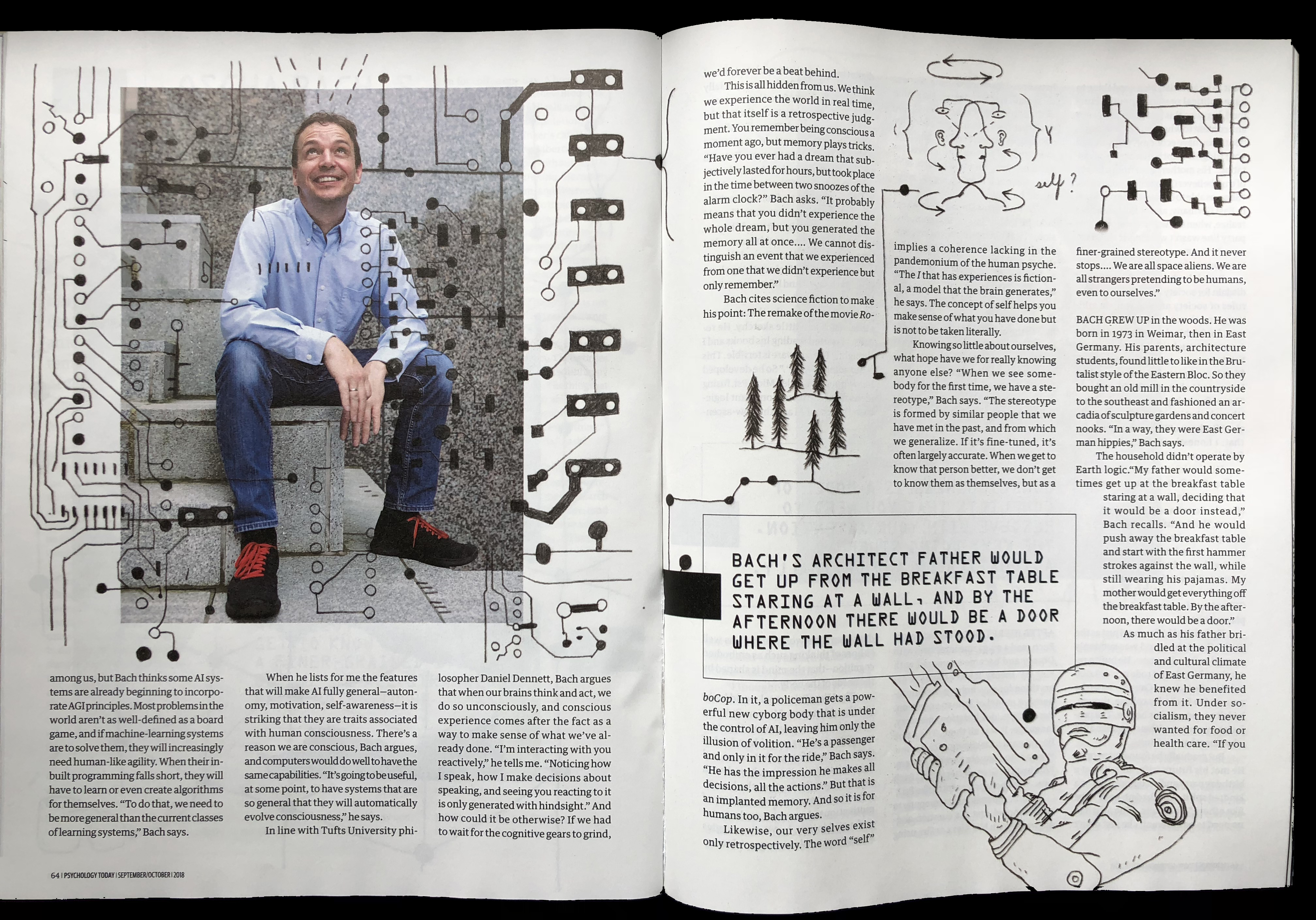The Wizard of Consciousness
Psychology Today. Published September 4, 2018.
Written By George Musser. Photography by Michael McGregor.
Joscha Bach’s lifelong quest to achieve strong artificial intelligence spurred him to develop a cognitive architecture with a focus on aesthetics and emotion. It’s a fitting window into his own mind.







Sentient machines are the baddies in science fiction, but Bach says what comes after them should really worry us. Consciousness, he thinks, is a passing phase in the history of the universe. Hyperadvanced AIs will no longer have use for it; they will have learned all there is to learn. “Consciousness is a model of conflicts that you need to resolve with your attention,” Bach says. “And once you can do stuff automatically optimally, you don’t have consciousness about them anymore.”
The worst part won’t be our own uncertain fate in the world of the machines. It’s that a universe without consciousness will become a relentlessly utilitarian place. “I think it will be very boring,” Bach says. The machines will make the trains run on time, but see no point to self-expression: no art, no science, and probably no squirrels. Says Bach, “This idea that the universe creates this mirror that can reflect for an instant of its existence—this is really an accident.”
